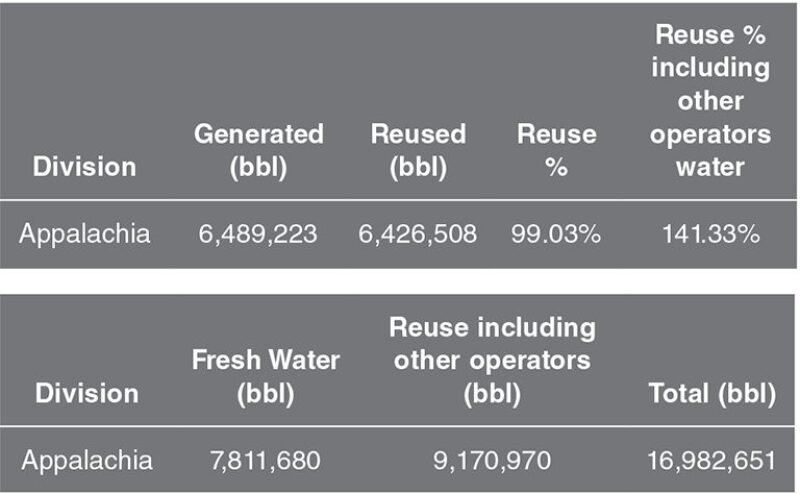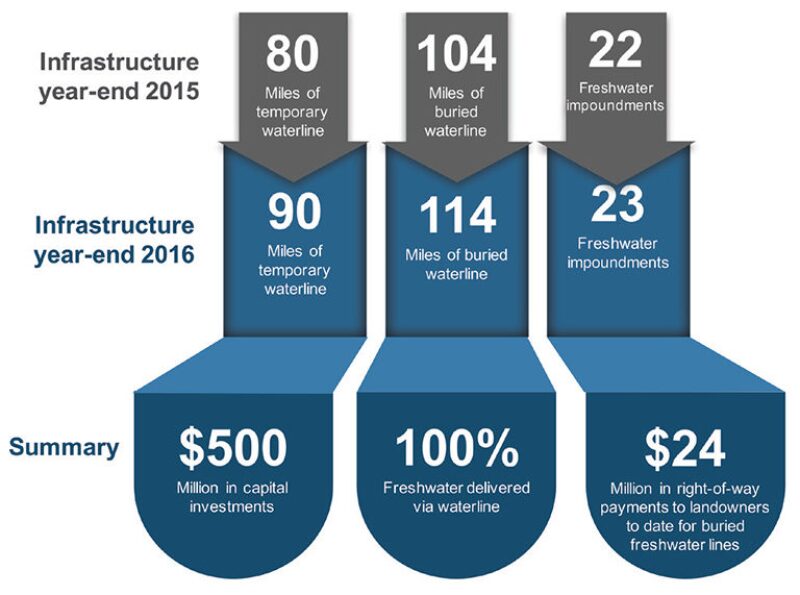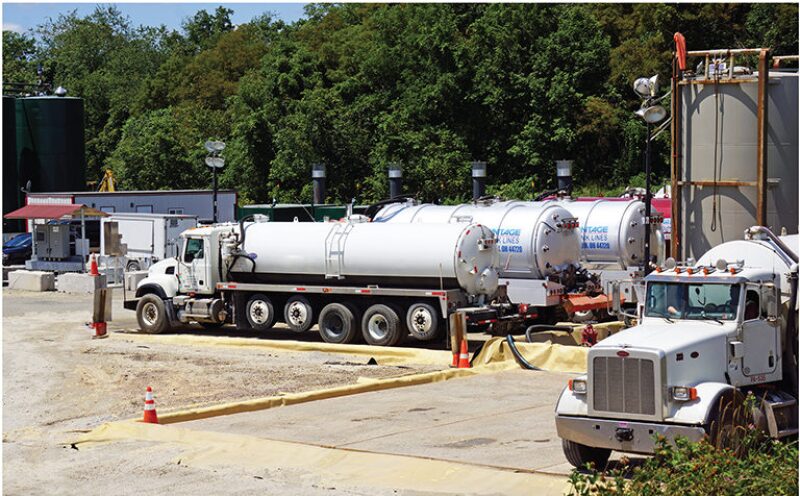It is known that a well injecting a lot of water near a big fault can lead to earthquakes. The problem is, more often than not those faults are not known until after a tremor.
“There was a time in the Marcellus where nearly every barrel of water produced was needed for the next well fractured. And then drilling slowed and some operators were stuck with produced water and no well to put it in.

It was a costly problem to have. The obvious solution was hiring a lot of trucks for the long haul to Ohio where injection disposal costs $8-10/bbl. It was so bad that operators changed their ways and began seeking out competitors to take the water off their hands, said Joseph Frantz, vice president of engineering in Range’s Marcellus division, which was a big buyer.
In 2016, when Range reported re-using 99% of its produced water in the Marcellus, it bought enough from others to push that total to 141% of its produced water, exceeding its fresh water use for fracturing, according to the company’s website.
“It saved us a lot of money last year,” Frantz said. “It really came out of sharing, and helping each other out.” The volume of water selling has dropped as drilling has come back, but it is still going on, he said.
More trading with competitors with nearby wells could allow deals that reduce one the highest costs of water management—moving it. “For us the goal is to be as flexible as possible and able to move water around really cost effectively,” said Frantz.

While there are entrepreneurs trying to create water trading markets, Frantz said they worked directly with others to set up deals.
Companies there are also working to pare their transport costs with logistics control centers that route shipments along the most efficient routes.
And they have been building pipeline networks and large holding ponds able to supply ever-bigger fracturing jobs. Over several years of use these options cost less than trucks, taking a lot of heavy vehicles off the narrow, twisting, hilly highways common in those areas.
A $500-million project to build freshwater supply pipelines and storage allowed Antero Resources to eliminate more than 1.4 million truck trips, and rising, since 2014.
Running “24-hour operations was not the best way to win any friends in the community,” said Alvyn Schopp, chief administrative officer and regional senior vice president for Antero.


